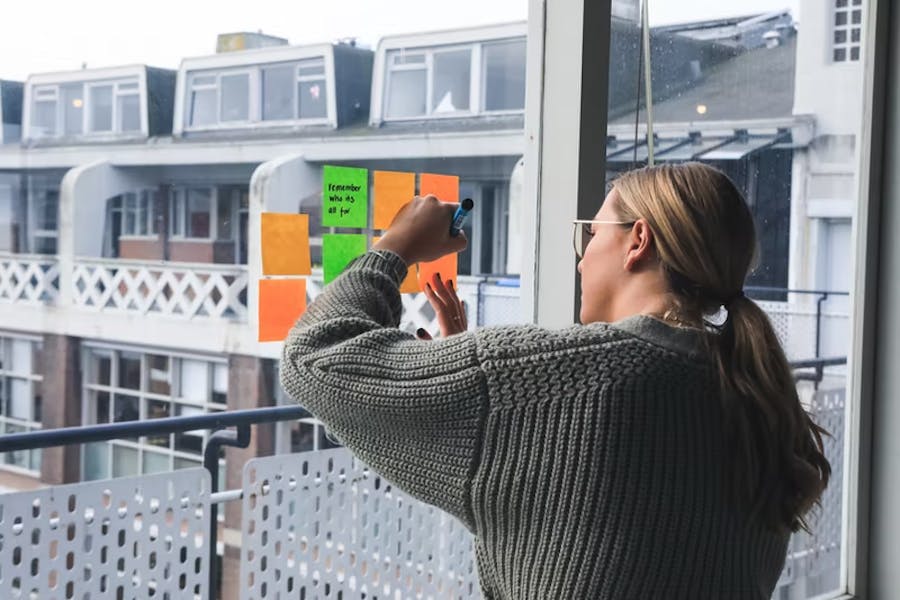As a college student who has interned for both American and French companies, I’ve noticed a few notable differences between the two. I also consulted several other students who have interned for American and French firms and we’ve compiled a list of a few key differences that students should keep in mind when deciding where they’d like to intern.
What time you’re expected to come in
Things have obviously changed since the pandemic started and many people find themselves working remotely, but pre-pandemic most internships were in person. American companies generally expect employees to arrive at work between 7:30-9:00 a.m. People in France don’t show up to work until 9-10 a.m., however, they do make up the time by staying about an hour later. When deciding whether to pursue a job or internship in France or the U.S. it’s important to think about whether you’d rather get that extra hour of sleep or get home an hour earlier.
Lunch breaks
A long lunch break is important to the French. It’s typical to get 1.5 to 2 hours off at lunchtime in France. In the US, employees tend to take 30 mins-1 hour for lunch. Another difference between the two cultures is how they take their lunch breaks. In the U.S. it’s quite common for people to eat lunch at their desk, and occasionally in the office cafeteria if they have one. In France, workers rarely stay in the office during their long lunch break. Parisians tend to flock to cafes during lunch, while those who live in the suburbs prefer to go home and spend time with their families.
Autonomy
This is a difficult section to generalize, as the amount of autonomy you have as an intern is going to vary from company to company, so I can only speak from my personal experience. I’ve found French internships to be relatively autonomous. Supervisors delegated some tasks to me, but they expected me to be able to find other things to do on my own as well. American companies assigned me a few tasks at a time and generally asked for updates throughout the day on each project. American companies also put more of an emphasis on the mentorship aspect of an internship, while French companies see internships as an opportunity for students to get hands-on experience working in a real professional environment. These are important points to keep in mind. If you’re someone who needs to be told what to do and prefer a strong guiding hand, you may prefer to intern in the U.S., however, if you’re the kind of person who is very independent and tends to come into a position with a lot of ideas of your own, you may prefer interning in France.
The value given to interns
This is the area in which I found French and American companies to be the most similar. After completing a particularly big or challenging project both French and American companies weren’t stingy with praise. A misconception about internships, in general, is that interns are treated like nobodies. I haven’t found this to be true in either country. I’ve felt extremely valued and appreciated interning in both France and the U.S. The one difference is why the praise is given. At my internship in the U.S. I was praised for completing tasks I was assigned, while in France I was praised for finding projects I felt could benefit the company and successfully executing them. As it turns out, this section ends up pairing well with the previous section where I discussed the differences in autonomy.
Final thoughts
Deciding where you want to intern as a pre- or post-graduate can be difficult. Internships are experiences that shape not only your professional but personal development as well. If you find yourself contemplating applying for internships both in the U.S. and in France, there are a few other things to consider. If you’re a U.S. citizen, you’ll need a visa to work in France. I got my French visa through a study abroad program, so my school sponsored my visa, not the company I was interning for. Getting a company to agree to sponsor you can be difficult, as they’ll need to financially sponsor your work visa. This may deter some French companies from wanting to hire someone from outside the EU.
Another thing to consider as an English-speaking person trying to intern in France is your level of French proficiency. I took three years of French in high school and two semesters in college. While interning in France I am also enrolled in an “advanced French” class. Keep all of this in mind when I tell you I can’t follow most of my coworkers’ conversations. They speak at an insane pace and their conversations are riddled with French slang. Most of them speak English, and they’re happy to help me practice my French at a slower pace, but it can be frustrating sometimes to not be able to fully understand the conversations around you. However, interning in France has been one of the most rewarding experiences of my life.
I hope my experiences interning in both the U.S. and France can be useful to those who are deciding where they’d like to pursue an internship and good luck!

